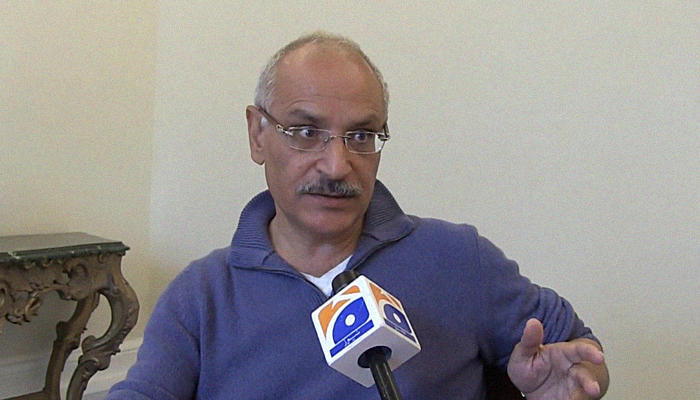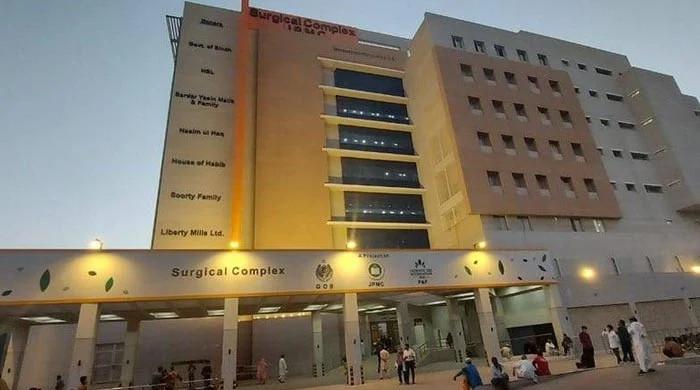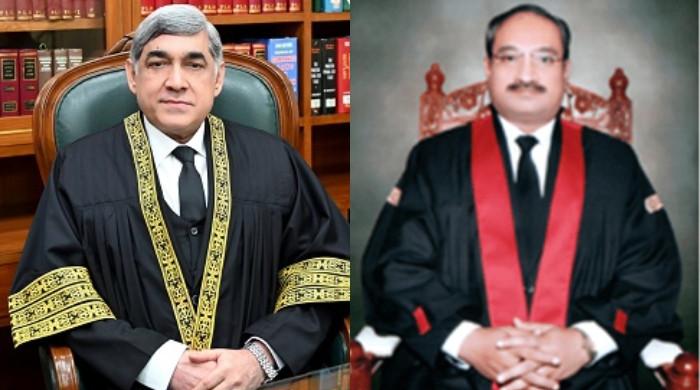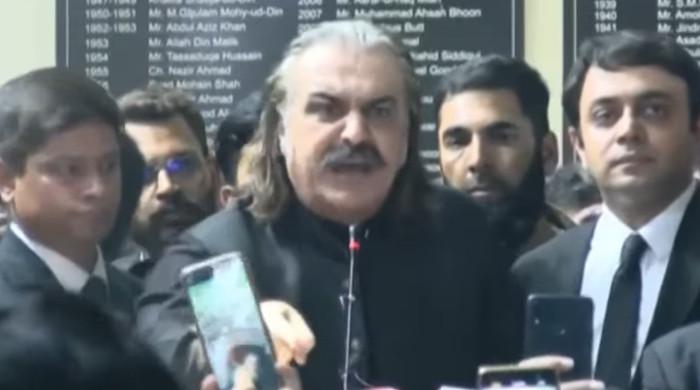MQM-P's Aminul Haque files freezing order claim against Altaf Hussain at London court
'Case between the MQM and the defendants is about who owns several London properties and who's entitled to benefit'
September 23, 2020

LONDON: The MQM-P has filed a declaratory relief and proprietary injunction claim — akin to a freezing order — in the Chancery Division of the London's High Court of Justice against the MQM-L founder Altaf Hussain for the recovery of trust properties located in the British capital, a top official confirmed.
Speaking to Geo News, Nazar Mohammad, the head of chambers at the London-based Legis Chambers who initiated the case two weeks ago, explained that since beneficial or equitable ownership requires parties to “come with clean hands”, it would be "an important issue" as to who may be guilty of improper conduct.
There are at least seven valuable properties valued at around £15 million at the centre of the action and while the claim's focus currently remained on these, tracing other assets may reveal even more valuable assets, including cash.
Material evidence from prior court cases included in the claim showed that Hussain had deposed these properties were held on trust for the MQM.
For instance, during a divorce settlement with his former wife, which included a lump sum payment worth £1.5 million and £15,000 monthly payments, the MQM-L founder maintained these properties in question were trust properties held specifically for the party and that he did not have a personal interest in them.
As it seems difficult to deny the facts currently within the claim, Hussain would need to explain to the court in the present proceedings why he should not vacate, for example, his property at Abbey View.
Mohammad said the British law recognised two different types of ownerships — legal and beneficial, the latter alternatively known as equitable ownership. Equity is a legal concept that assists applicants in achieving a result that is just and fair if other circumstances support the desired result, even if there is a small failure in the process.”
Equity requires parties to “come with clean hands”, explained the lawyer, who initiated the case against the MQM-L founder at the High Court of Justice two weeks ago on behalf of his client Aminul Haque — Pakistan's IT and Telecommunication Minister, lawmaker from Karachi's NA-251 constituency, and a member of the MQM-P's Rabita Committee.
Mohammad specialises in civil and criminal litigation and called to the Bar by the Honourable Society of the Inner Temple.
"The question of whose hands are clean will also be an important issue in the case," he said. "Companies and natural persons may own property in their names but unincorporated associations such as political parties cannot own property in their names.
"Unincorporated associations require trustees that are reliable people to hold the land in trust for them. That is why, for example, the MQM purchased properties in the names of various people.
"This case between the MQM and the defendants is about who owns several London properties and who is entitled to benefit from them.”











